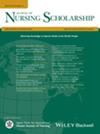Relations between concussion symptoms and depression among patients with mild traumatic brain injury: A moderated mediation model
Abstract
Introduction
Concussion symptoms following a traumatic accident are both common and known to adversely affect mental health and recovery in patients with traumatic brain injury. Depression, highly prevalent among patients with traumatic brain injury, is also associated with the important factors of sleep quality and resilience. However, the mediator and moderator roles of depression following concussion in patients with traumatic brain injury have been underexplored. The aims of this study were to investigate the mediating role of sleep quality in the relation between concussion symptoms and depression and to examine the moderating effect of resilience on this mediated model.
Design
Cross-sectional pretest data analysis of a randomized controlled trial.
Methods
A total of 249 adult patients with mild traumatic brain injury (Glasgow Coma Scale 13–15) at admission following brain injury were surveyed at a medical center in Taipei, Taiwan. The outcome variables were concussion symptoms (Rivermead Post-Concussion Symptom Questionnaire), sleep quality (Pittsburgh Sleep Quality Index), resilience (Resilience Scale for Adults), and depression (Beck Depression Inventory II). These data were analyzed using moderated mediation regressions with the SPSS PROCESS macro.
Results
In patients with mild traumatic brain injury, there was a significant positive relation between concussion symptoms and depression, of which sleep quality was a significant mediator. Additionally, resilience had a negative moderating effect on the relations between sleep quality and depression. Patients with less resilience showed a stronger negative effect of sleep quality on depression.
Conclusion
Our findings suggest that ameliorating both concussion symptoms and sleep disturbance is important for reducing the risk of depression in patients with mild traumatic brain injury, especially in those patients with less resilience.
Clinical Relevance
It is essential for clinical nurses to develop interventions for patients with mild traumatic brain injury that will improve their sleep quality, while strengthening their resilience, to alleviate depression.

 求助内容:
求助内容: 应助结果提醒方式:
应助结果提醒方式:


